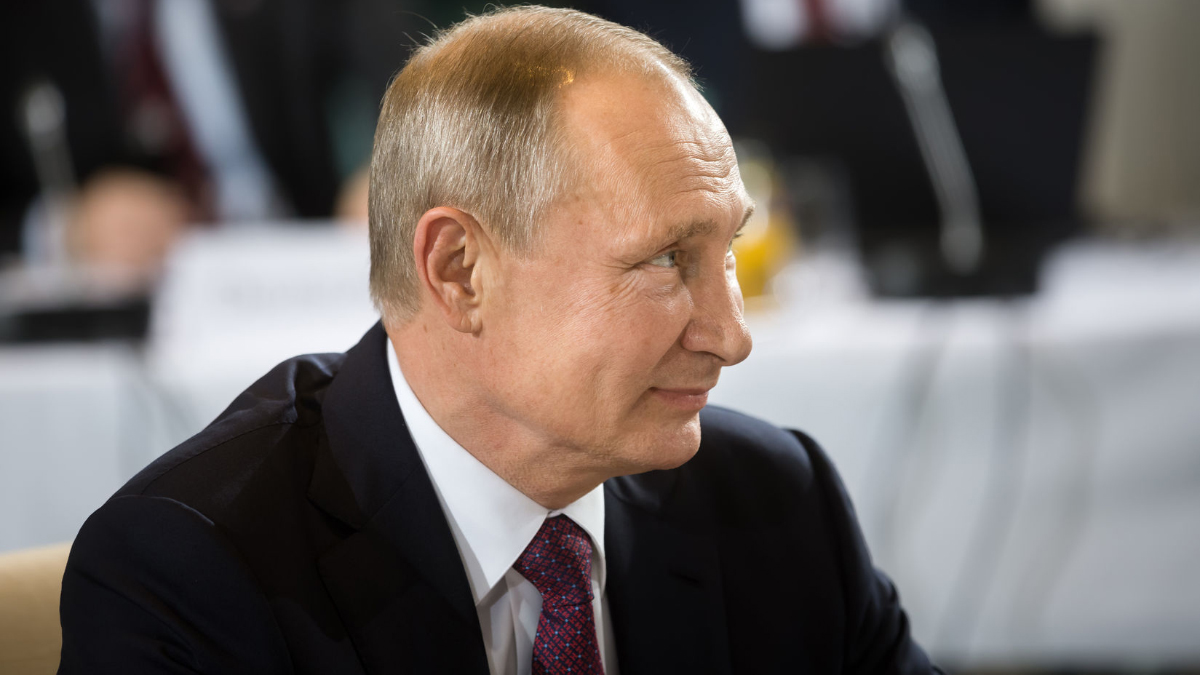Vladimir Putin, the President of Russia, couldn’t catch a break in America, even before the U.S. intelligence community concluded that the Russian government had hacked the Democratic National Committee’s e-mails and had given them to Wikileaks for public release. After Putin’s annexation of Crimea and meddling in the Ukrainian and Syrian Civil Wars, the U.S. government and media long soured on the macho man.
Yes, Putin is an autocrat who snuffed out democracy in Russia and wants to regain some of Russia’s status in the world long after the Soviet Union’s collapse in 1991. Yet the U.S. government, the world champion of unneeded military interventions around the globe since World War II and currently running simultaneous wars in at least seven countries, has little room to talk. In fact, one doesn’t have to like Dictator Putin to make a reasonable argument that the U.S. expansion of a hostile military alliance—NATO—eastward right to the borders of the defeated and downtrodden Russia after the Cold War ended, led to the rise of the nationalist Putin in the first place and compelled him to salvage what he could of his traditional sphere of influence in Ukraine, Crimea, Moldova, and Georgia. As for Putin’s intervention in Syria, he is trying to rescue the even more despotic Bashar al-Assad in Syria, Russia’s only ally in the Middle East and a country not strategic to the United States.
However, generally, Russia is much weaker than its “resurgent” depiction by the American media, which is always willing to find a cartoonishly diabolical villain with which the United States can joust for global supremacy. The Russia has been severely affected by low oil prices—a mainstay of the Russian economy—and Western economic sanctions imposed because of Russian meddling in Ukraine and Crimea. For the first time in Putin’s long tenure as the Russian strongman, the country’s incomes are declining. Much of Putin’s increased bluster overseas might be explained as a distraction from Russia’s ills at home.
The long economic recession will lead to the substantial reduction of Russia’s defense spending by six percent annually for the next three years, at a time when U.S defense spending is beginning to needlessly increase again. According to the Stockholm International Peace Research Institute, the United States already spends more than six times what Russia does on defense and more than what the next seven highest spending countries combined expend on their militaries—including China and Russia. Also, this vast advantage in American military spending has been cumulative ever since the end of the Cold War, leading to a widening advantage of the U.S. military over other militaries, including Russia’s.
Thus, although Putin has recently exhibited military bluster, it hides military and domestic weakness. For example, with much fanfare, Russia recently sent its single obsolete aircraft carrier (the United States has 10 powerful modern carriers)—the Admiral Kuznetsov—to the Syrian coast to help Assad in his civil war. Yet what was supposed to be an impressive show of force to show that Kremlin is back as a maritime power turned out to be a bit of an embarrassment, because the decrepit carrier, prone to breakdowns, had to be accompanied by an oceangoing tugboat in case of mechanical trouble. The New York Times lampooned the carrier as a “lumbering tub fit for the scrap heap,” “something of a lemon from the start,” and “known more as a threat to its crew than anything else.”
In the long term, Russia faces potential economic decline because of a demographic crisis—as its population ages rapidly. And all the grandiose talk about costly new Russian military bases in Egypt, Vietnam, and Cuba is likely to be a ghost ship that will crash on the shoals Russia’s money problems and the lukewarm response of host countries.
However, despite Russia’s weakness and the general exaggeration of that country’s threat to American security, the U.S. intelligence community believes that to attempt to influence the U.S. presidential election, Putin’s Russia was behind the audacious hacking of the Democratic National Committee’s e-mails and their subsequent distribution to Wikileaks. While Hillary Clinton had previously drawn Putin’s ire for criticizing a Russian election, and the United States has a history of meddling in other countries’ elections (which should stop), any foreign meddling in U.S. elections—critical to America’s system of government—needs to be quickly stanched. Fully defending the vast and decentralized American election system from attack is difficult, but such hacking can be deterred in the future by retaliating in kind on Russia’s computer systems with superior U.S. cyber attacking capabilities. For example, after the U.S. election is safely over, perhaps Moscow’s lights need to be turned off for a couple of days.
An aggressive U.S. posture toward Russia is unneeded—especially in areas not strategic to the United States, such as Crimea, Ukraine, Moldova, Georgia, and Syria—and, to counter a rising China, general U.S.-Russian relations should be improved, but U.S. elections are too important to the republic to allow Russia or any other country to feel that they can try to manipulate them without retaliation.

















